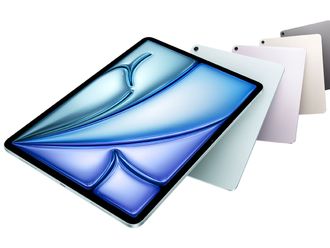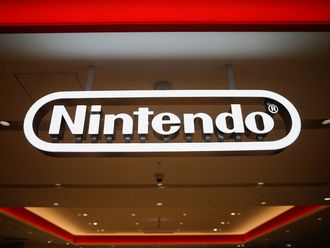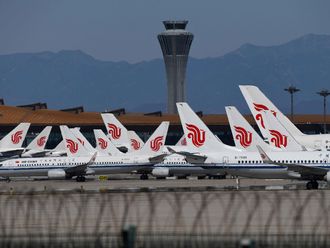Dubai: Smartphone sales will overtake voice-only (feature) phones in the Middle East and North Africa (Mena) region for the first time this year, fuelled by low-cost devices, according to information technology research and advisory firm, Gartner.
Smartphones have already overtaken feature phones globally last year, with smartphones totalling 968 million units out of the total 1.8 billion units in 2013, accounting for 53.6 per cent.
In the region. However, smartphones accounted for 31.43 per cent of overall mobile phone sales in 2013.
“This year, smartphones will account for 56.60 per cent in the region, growth mainly to come from low-cost devices using the Android operating system,” Annette Zimmermann, research director at Gartner Deutschland GmbH, told Gulf News in an exclusive interview.
She said that feature phones will continue to decline very rapidly as Samsung is pushing low-cost smartphones, below $100 very aggressively, apart from Lenovo and TCL.
Lack of “compelling hardware innovation” for high-end smartphones is forcing consumers not to upgrade their devices.
Research firm International Data Corporation (IDC) expects the average selling price of smartphones to drop this year to $314 from $335 in 2013, and to keep declining to $267 by 2018.
In the first quarter of the year, Samsung has become the overall market leader for the first time by overtaking Nokia. Nokia lost the smartphone crown to Samsung in 2012.
The overall market in Mena grew two per cent year on year to 21.33 million compared to 20.95 million during the first three months. Smartphone sales accounted for 41.91 per cent of the overall sales to 8.93 million compared to 5.36 million during the same period last year.
Operating system
“Android is still the top operating system in the first quarter, increasing its market share by 14 percentage points,” Zimmermann said.
Going forward, she said that Microsoft’s success depends on Nokia X Android phone despite having good mid-range models. Lumia 520 is still the “cash cow” for Microsoft.
White box manufacturers or unbranded Chinese manufacturers have registered 15 per cent of the overall phone sales. Their share in the smartphone sales is increasing.
“I see a pretty good volume for Nokia’s Android devices as it is cheap, but the big question is what Microsoft is going to do with the devices in future as it is not their operating system [Windows],” Zimmermann said.
Windows is still struggling in the market, both regionally and globally. They have made good editions with Lumia 930, double-SIM phone and the cheapest 4G LTE device for Dh699.
“Nokia definitely needs to bring down the prices of 4G devices as TCL is very aggressive in that space and they are using the cheap processor from Mediatek,” she said.
Microsoft increased its global market share from 2.5 per cent in 2012 to just 3.2 per cent in 2013. Regionally, Windows maintained its two per cent market share in the first quarter compared to the same period last year.
Zimmermann said that BlackBerry is losing its smartphone share and is placed at number six in the region with three per cent market share. They will continue to decrease globally.
BlackBerry’s global market share decreased from five per cent in 2012 to 1.9 per cent last year.
She expects that BlackBerry will exit the devices market at some point of time and focus on their core infrastructure services.
Gartner expects the regional second quarter handset sales to grow by around three per cent to around 23 million units. Out of which around 10 million are expected to be smartphones.
For the whole year, the regional market is likely to grow by less than one per cent to 106 million units compared to 105 million last year. Smartphone sales are expected to grow by 82 per cent to 60 million compared to 33 million units last year.












